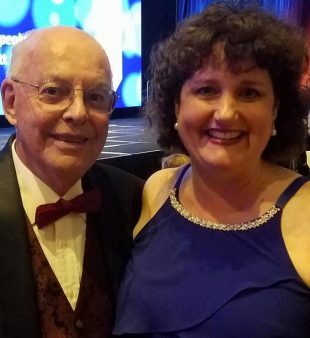You’re feeling really uptight. You’re about to call a very high profile decision maker to ask for a favor or something big. You’ve been warned that this important person is very busy and probably won’t talk for long. You take a deep breath, mentally prepare for the worst, and make the call. Surprisingly, instead of being short and tense, your call is pleasant. You two chat about business and/or personal matters before getting to your request.
Now…how do you feel?
Less guarded? More open to helping him or her? Sometimes calculated, sometimes not, this unanticipated nice behavior provides an advantage in future conversations and in negotiations.
This has actually happened to me and a great friendship formed from it.
Meet my mentor, Howard Putnam, Former CEO of Braniff and Southwest Airlines, powerful speaker and a truly nice man. We met when I called him with an outrageous question.
A recent article in the Journal of Applied Psychology reveals being the nice guy in a negotiation, even if you’re faking it, leads to greater future outcomes. In this study, people who negotiated with an angry person who was NOT nice were more likely to strike a deal – INITIALLY. However, they were also more likely to renege on the deal later, fail to implement the terms of the deal, and less likely to have future exchanges (what the study called the “blowback effect”).
Conversely, being “nice” gave the impression the person possessed integrity and could be trusted. Deals negotiated with a “nice guy” were more likely to have a stronger and more cooperative implementation.
Keep this in mind when negotiating:
- Being nice is a sign of strength, not weakness. Watch out when other parties feel overpowered, taken advantage of, or that they’ve made a bad deal. Those folks often attempt to sabotage an agreement or eagerly look for your non-compliance. While it may take longer, being the nice guy or gal in a negotiation usually gains you more trust, information and commitment.
- Forcing agreements doesn’t work long-term. Many people claim to understand the need for collaboration but then diligently fight against it. You can disagree without being disagreeable. Applying force, refusing to share information, going to someone’s superior, and attempting to just deal with decision makers rarely fits in with a collaborative professional environment.
- Win/win agreements are more durable. Remember what win/win stands for: it is an attempt for all the parties involved to get a better agreement by collaborating to meet each party’s interests. In other words, everyone gains more if they play a little nicer. These deals are more “sticky” or durable. People are more likely to support something they created with people they trust – and they’ll have more loyalty to the agreement later if issues arise.
- Be an advocate for reaching an agreement. Start by asking each person what outcome he or she would want if there were no limits. These answers will show where each party’s true interest lies. It’s a good practice to help others achieve their results while ensuring you receive yours. In the end, being kind and nice to others pays off.
Journey On!
About Linda: A recognized authority on negotiations, workplace issues and strategic communication, Linda Swindling, JD, CSP is an author, media expert, a “recovering” employment attorney, and a professional speaker.
